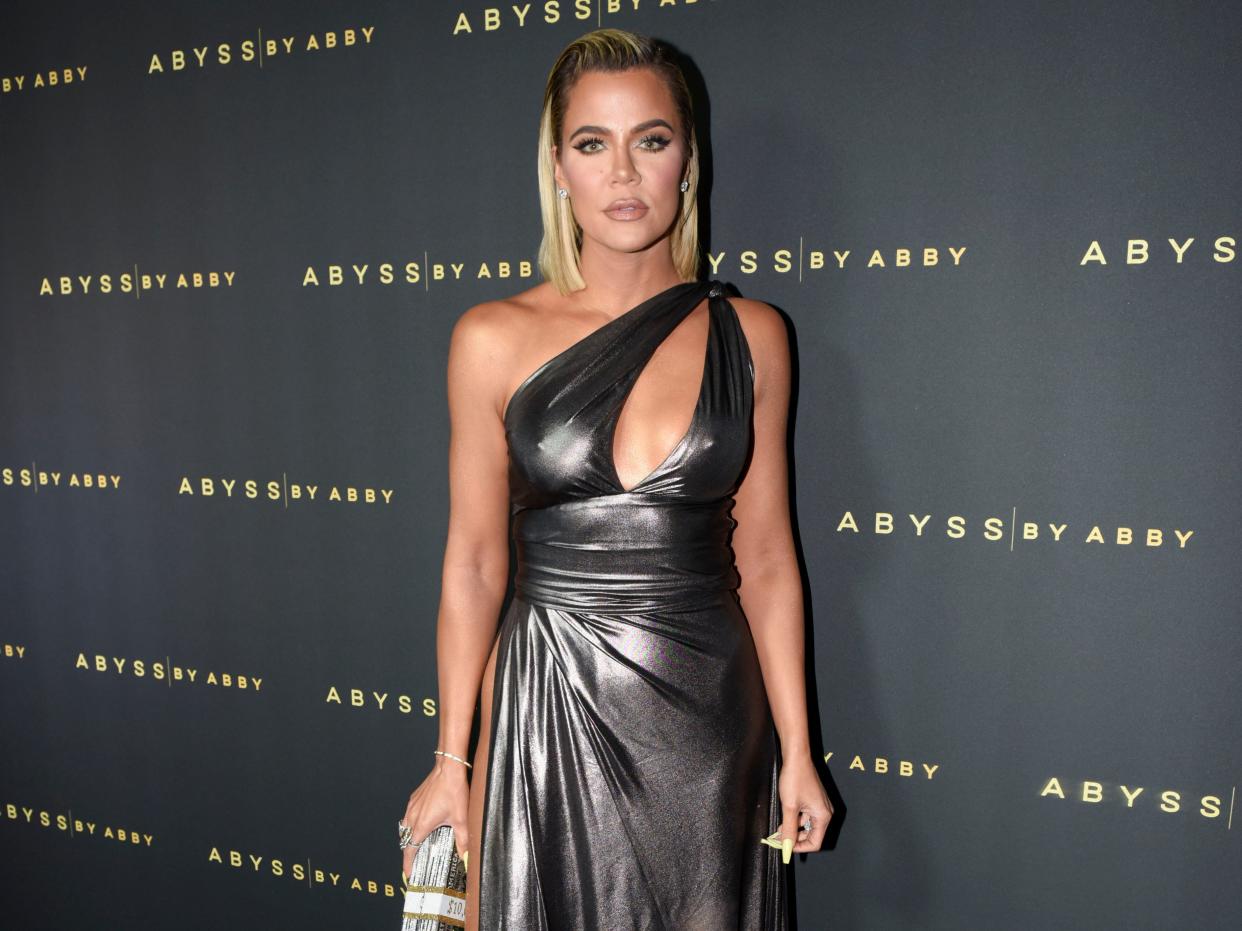The sad truth about ‘that’ unedited photo of Khloe Kardashian

‘Even by the Kardashian’s standards, this is a mammoth amount of work for just a picture’
(Getty Images for Abyss By Abby)- Oops!Something went wrong.Please try again later.
Over the weekend, an unedited photo of Khloe Kardashian surfaced on the internet after a member of her team mistakenly published it. In the aftermath, reports filtered through that the media personality’s representatives had been insisting Instagram accounts hosting the photo take it down. Reddit, Twitter and Instagram were all alerted about the image amid claims it may be a copyright infringement.
Even by Kardashian standards, this is a mammoth amount of work for just a picture, especially when image is their bread and butter. Their beauty standards have influenced everything from make-up, to clothes, to plastic surgery. Undoubtedly, some pressures come with their line of work.
After all, you’re selling a picture-perfect world, and to uphold that requires work and dedication. But what of the use of Photoshop and heavy editing, both of which often go hand in hand with these kinds of images? “Before” and “after” shots of the star are often used in tandem with tag lines that say, “don’t believe everything you see on Instagram”.
While these posts help in some way to promote body confidence and warn of the dangers of social media, they are also incredibly depressing. They pit one version of a woman against the other. The unedited is unwanted; the edited is beloved. And most of the time, the woman believes that.
Khloe is beautiful, impossibly so. Her apparent desire to alter images of herself seems bewildering. Yet it’s also true that all of our concepts of self image are complex – and can be held to a personal logic that might be hard to understand. Just two months ago, Khloe posted a photo in a bikini showing her stretch marks, which are typical in a body well-lived. Alongside the image, she wrote: “I love my stripes.” Many praised her, but if she was so proud of her body, why the panic to get an unedited image deleted from internet history?
Read more:
My kids want to go to Center Parcs – but who can afford a luxury like that?
If you won’t carry a ‘vaccine passport’, do us all a favour and stay at home
A message to the Brits forced to return home from Spain: This is the Brexit you voted for
Back in February, social media almost imploded when Khloe’s younger sister Kendall Jenner posted an image of herself in a bikini for a Skims campaign. Some criticised her for promoting “unrealistic body standards” – she was also accused of photoshopping the lingerie shots.
In the ad campaign, the supermodel poses in front of a mirror, showcasing a red bikini and her shimmering, hairless body. She’s lean, she’s long, and she’s heartbreakingly gorgeous.
Two years ago, a picture like that would have sent me spiralling. Two years ago, I would have Googled, “quick and easy diets to lose 20 pounds”. Two years ago, I would have looked in the mirror, pulled at the skin on my stomach – and cried because I didn’t look like her.
Two years on, however, I’m at a point where I can look in the mirror and say I like my body. Pictures of celebrities or influencers don’t shock me into despair about my weight. Seeing images of Khloe and Kendall no longer make me self-conscious – but they do make me sad.
That’s because the muddled dialogue around women’s bodies is toxic and feeds a virus that has made women sick for decades. Despite the body positivity and confidence movements we see, society still tells us “some bodies are better than others”. It’s why I hated mine for years. It might even be why Khloe rushed to erase one picture – we don’t know for sure, but it feels more vital than ever that we need all body types to be accepted.
And that’s where people with platforms like Khloe’s can help. She has 136 million followers on Instagram – that’s more than the population of the UK. At some point, responsibility for what you portray must come into play. The Kardashians speak of being “proud” of their bodies and curves – if Khloe had posted the unedited image herself, realistically, perhaps nobody would have noticed. Many might have praised her for it; and taken solace in its reality. Young women looking in the mirror might have felt more positive.
There are unimaginable – and unrealistic – beauty standards placed upon women every day. It’s a profitable business. But panicking when we’re seen without a filter only perpetuates the self-doubt which plagues women’s minds and bodies. Deleting an image won’t fix that.

